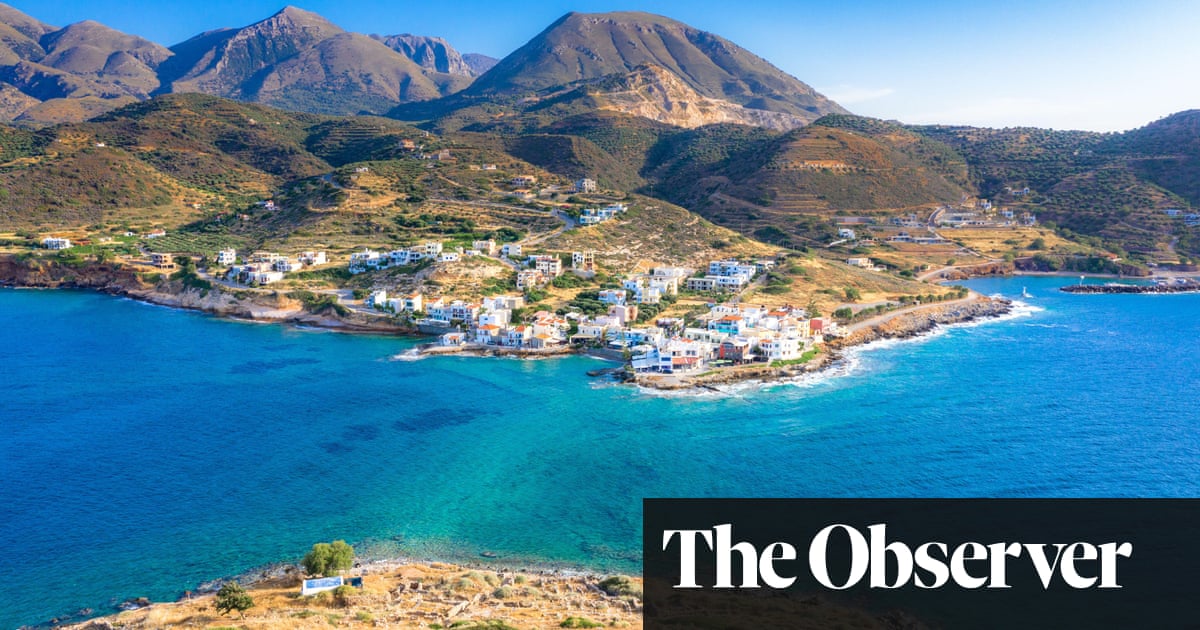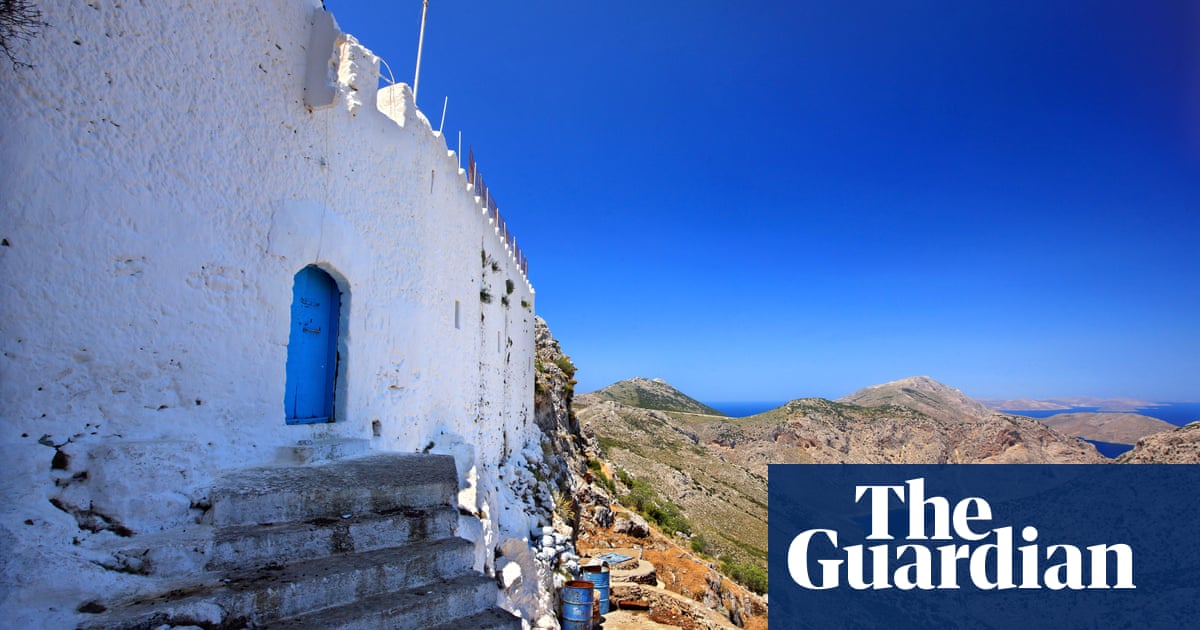
Sometimes, when you travel, you arrive somewhere so ridiculously picturesque, so dictionary-definition of how you expect the country to look, that you half suspect it was built as a film set, or has been “Disneyfied” specifically for tourists.
I get this feeling when I walk on to the small, horseshoe-shaped bay at Mochlos, Crete. Half a dozen restaurants, all cobalt wooden chairs, whitewashed tables and blackboards offer gyros and freshly caught fish. On the slim strip of stones that fringes the low sea wall, a handful of locals is towelling off after a late dip, the last two heads bobbing in the metallic blue water, the small, humpy island behind them backlit by the apricot-gold light of the sun, slowly dipping beneath the horizon.
I settle in with a cold Mythos and order up a plate of crispy gyros, fresh pitta and tzatziki. As I gaze out over the slowly darkening Gulf of Mirabello, I feel sure that a week here, doing nothing but pottering the 10-minute walk between my hotel, the Mochlos Blue, and this ramshackle clutch of tavernas, would be more restorative than a luxurious spa hotel.
But this quiet corner of Crete is well worth exploring. The northeast, home to the Dikti mountains, is one of the island’s last unspoilt stretches of coastline, and a world away from the luxury resorts that scatter the coast around Elounda, and the 1980s sprawling hotels and apartments that characterise places such as Agios Nikolaos.
After a lazy first day, I set out to discover a good local beach (the one thing Mochlos doesn’t have), and follow a recommendation to Tholos, hidden away 3km from the main road.
It turns out to be an absolute treat of a beach: a long strip of sand that is free of sun loungers and parasols, the only shade thrown by a cluster of tamarind trees sheltering a handful of cars. As I step into the water, only one other couple is swimming. The water is sparklingly clear, shoals of tiny fish whisking through the shallows. The mountains loom to the southern end of the beach past one whitewashed house on the small road that leads over the headland to the north.
The swimming is really only an excuse for over-indulgence. Cretan food is arguably the best in Greece, the island’s diverse landscapes producing everything from mountain herbs, greens and tangy cheese to grassily delicious olive oils, freshly caught fish and crispy pastry snacks, such as spanakopita – golden flaky pastry, stuffed with salty feta and herbs. Best of all, because this area of Crete is off the mainstream tourist trail, even the most spectacularly situated taverna rarely gets overrun.
I head to the village of Mirsini, where a huddle of whitewashed houses clambers up the mountainside and Mochlos is little more than a vague white fringe along a small strip of sea, hundreds of metres below. As I climb the steps of the Taverna Kathodon, I pass circular trays of tomatoes, slowly drying in the sunshine. I emerge on to a series of small terraces, crammed with terracotta pots and mismatched chairs and tables. The bright yellow walls are covered with everything from straw hats to fake flowers and old cooking implements.
Because this area of Crete is off the mainstream tourist trail, even the most spectacularly situated taverna rarely gets overrun.
The view is so spectacular – great, scrub-faced mountains, the distant outline of Crete’s jagged northern coast like a huge sleeping alligator beside the sea – that it wouldn’t matter if the food was average. Instead, I eat crispy mizithropita – a flatbread stuffed with cheese, hot off the pan and drizzled with honey, and dolmadakia – the most succulent vine leaves I’ve ever tasted.
At the table next to me, an elderly couple is making their way through a carafe of wine, taking pictures to send to their grandchildren. On the other side of the terrace, a Greek family is squabbling over vast plates of meatballs and calamari. Beneath it all, the cicadas keep up their rhythmic chorus. It strikes me I may have reached peak Greek.
All the eating pushes me into deciding to tackle the Richtis Gorge, a short half-hour drive from Mochlos. I take the easy option (although it’s all relative) and drive the steep, twisting road from the upper car park down to the beach, reducing the hike from two hours to about 40 minutes (and cutting out most of the uphill stretches). Even so, it’s quite a clamber and more like a rainforest walk than a gorge. Small waterfalls rush through gashes in the rock, understudies for the main event – a shimmering, aquamarine pool with kinetic tendrils of water hurling down over the rock face above.
The Richtis proves to be quite the adventure, justifying my last day of doing little except lazing by the Mochlos Blue’s tranquil pool. The hotel is adults-only (apart from summer school holidays), and with just six rooms it feels more like a spacious villa; the honesty bar is well stocked with snacks, cold beers and local wine, and the small breakfast buffet is complimented each morning by a traditional, homemade treat – scrambled eggs with tomato, spanakopita and, my absolute favourite, loukoumades – deep-fried dough balls, drenched in honey and nuts.
On my last evening, I drive up from the village for supper at the Taverna Natural, where tables are set out in a charming, tree-dotted garden. The view across the Gulf of Mirabello is perhaps one of the most stunning on the whole island. I time it just right for the sunset and watch, transfixed, as the sky flames through an extraordinary palette of colours, the sun burning slowly down towards the purple-auburn mountains. I order a tomato salad and moussaka, the aubergines lying across the dish like silk. The view is extraordinary, the food delicious, the beer perfectly chilled… Would it be wrong to stay another week?












